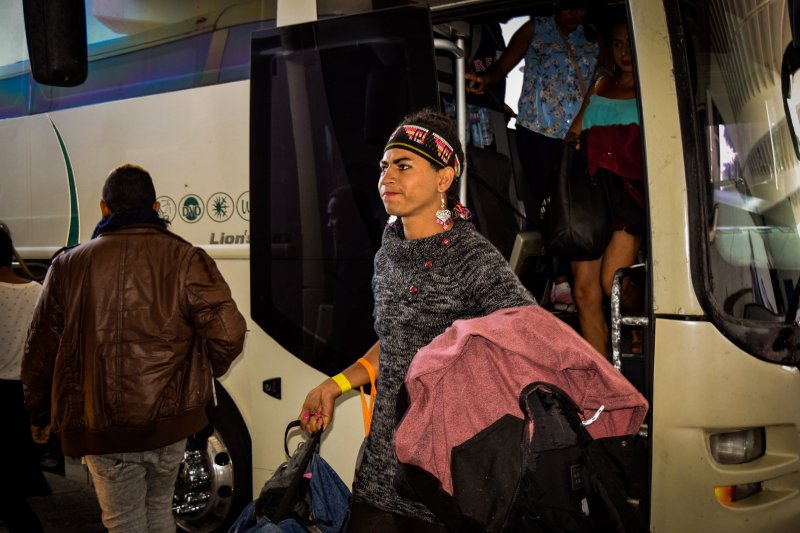Members of a group of LGBTQ migrants who separated from the caravan of Central American migrants, arrive at the border city of Tijuana, from where they will ask for asylum to the United States, in Tijuana, Mexico, on Sunday. Photo by Joebeth Terriquez/EPA-EFE
Nov. 13 (UPI) -- A second group of Central American migrants -- part of a larger "caravan" traveling through Mexico -- arrived in Tijuana on Tuesday to seek asylum in the United States.
Some 350 people arrived on buses in the city directly across the border from San Diego. It is the second group to arrive there since Sunday, when about 80 LGBTQ migrants arrived by bus.
The caravan, which primarily includes people from Guatemala, Honduras and El Salvador, began with about 120 people and grew to about 7,000 at its peak, United Nations figures indicate. Groups have splintered off in recent days after pooling resources for transportation, some seeking different ports of entry. Another two, smaller groups also were en route north through Mexico.
The group arrived in Mexico City last week and voted to walk toward Tijuana, a longer and safer route compared to a shorter trek across the Rio Grande into Texas.
U.S. Customs and Border Protection said it planned to close northbound lanes at the San Isidro and Otay Mesa border crossings, both near Tijuana, in advance of the arrival of the migrants.
The LGBTQ group arranged for Airbnb accommodations in Tijuana, while religious groups were working to shelter the larger group that arrived Tuesday, and the thousands of others expected in the coming days.
Legal aid groups told KFMB-TV in San Diego there's a waiting list of about 2,500 people attempting to claim asylum at the border there, with a wait time that could take up to 60 days.
On Friday, President Donald Trump signed a proclamation preventing people who cross the southern border illegally from asking for asylum. Those who do cross illegally, will be held until deportation, ending the "release" portion of the United States' so-called "catch and release" policy in which illegal border crossers are arrested and then released pending a future court date.
The Department of Defense has deployed some 5,800 U.S. troops to various locations along border with Mexico ahead of the arrival of the Central American migrants. On Oct. 31, Trump said the number of troops could increase to 10,000 to 15,000, on par with the 14,000 deployed to Afghanistan.















